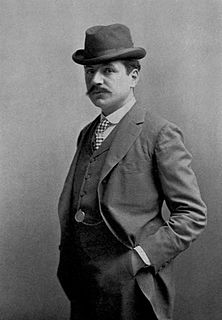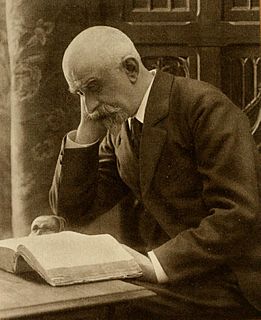A Quote by Oliver Goldsmith
Friendship is made up of esteem and pleasure; pity is composed of sorrow and contempt: the mind may for some time fluctuate between them, but it can never entertain both at once.
Related Quotes
To those who have lived long together, everything heard and everything seen recalls some pleasure communicated, some benefit conferred, some petty quarrel or some slight endearment. Esteem of great powers, or amiable qualities newly discovered may embroider a day or a week, but a friendship of twenty years is interwoven with the texture of life.
Behind joy and laughter there may be a temperament, coarse, hard and callous. But behind sorrow there is always sorrow. Pain, unlike pleasure, wears no mask. ... For this reason there is no truth comparable to sorrow. There are times when sorrow seems to me to be the only truth. Other things may be illusions of the eye or the appetite, made to blind the one and cloy the other, but out of sorrow have the worlds been built, and at the birth of a child or a star there is pain.
His contempt for humanity grew fiercer, and at last he came to realize that the world is made up mostly of fools and scoundrels. It became perfectly clear to him that he could entertain no hope of finding in someone else the same aspirations and antipathies; no hope of linking up with a mind which, like his own, took pleasure in a life of studious decrepitude; no hope of associating an intelligence as sharp and wayward as his own with any author or scholar.
If you once forfeit the confidence of your fellow citizens, you can never regain their respect and esteem. It is true that you may fool all of the people some of the time; you can even fool some of the people all of the time; but you can't fool all of the people all of the time. -Speech at Clinton, Illinois, September 8, 1854.
If friendship is to transpire between two people, it is important that both be in a state of availability. I have often been in the company of those who complain that they have no friends. Inevitably, I have observed that this condition was due to their own lack of availability; they were too encumbered to be able to welcome another. Such unavailability may be exterior in nature; that is, people may lack the time or the emotional energy necessary for friendship.
Meditation is not the pursuit of pleasure and the search for happiness. Meditation, on the contrary, is a state of mind in which there is no concept or formula, and therefore total freedom. It is only to such a mind that this bliss comes unsought and uninvited. Once it is there, though you may live in the world with all its noise, pleasure and brutality, they will not touch that mind.
I will trust Him. Whatever, wherever I am, I can never be thrown away. If I am in sickness, my sickness may serve Him; in perplexity, my perplexity may serve Him; if I am in sorrow, my sorrow may serve Him. My sickness, or perplexity, or sorrow may be necessary causes of some great end, which is quite beyond us. He does nothing in vain.
Like all living things, love, too, struggles against hardship, and in the process sheds its fatuous skin to expose one composed of more than just a storm of emotion-one of loyalty and divine friendship. And though it may be temporarily blinded by adversity, it never gives in or up, holding tight to lofty ideals that transcend this earth and time- while its counterfeit simply concludes it was mistaken and quickly runs off to find the next real thing.
When we say that pleasure is the end, we do not mean the pleasure of the profligate or that which depends on physical enjoyment--as some think who do not understand our teachings, disagree with them, or give them an evil interpretation--but by pleasure we mean the state wherein the body is free from pain and the mind from anxiety.







































